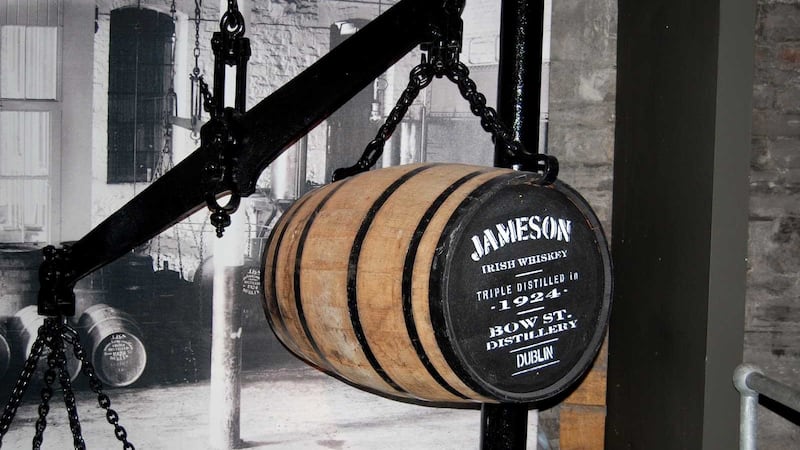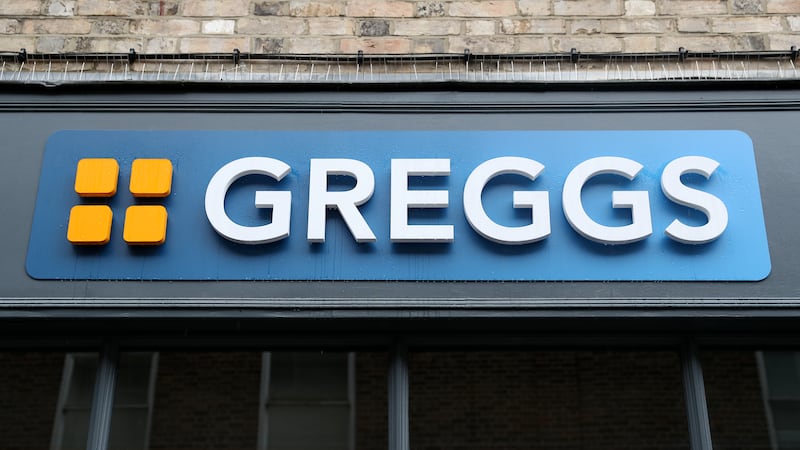A REVIVAL in whiskey distilling across Ireland is seeing a fresh batch of craft operations open up across the country.
But the increase in competition is viewed as "good news" by some of the sector's more established brands, according to leading distributor Dillon Bass.
After all, a rising tide (in this case of alcoholic spirits), lifts all boats.
Dillon Bass, as part of the Pernod Ricard and Moet Hennessey groups, has an enviable portfolio that sees the Belfast-based firm market and distribute some of the world's best known drinks brands.
That includes the iconic Hennessey Cognac - which last year marked its 250th anniversary - Moët et Chandon champagne, wine labels such as Jacob's Creek and Concha y Toro and whiskey brands Powers and Jameson.
And it is Dillon Bass's whiskey interests that are driving much of its growth in the local drinks scene, according to managing director Greg Hughes.
Notably, he said Jameson had seen a resurgence in popularity after repositioning itself as drink to be enjoyed by younger people as well as its more traditionally older consumer.
"Irish whiskey is a big big part of who we are," said Mr Hughes.
"If you think of Irish whiskey globally then Jameson is 'the brand'."
And he said the popularity for Irish whiskey over the last decade "has just exploded".
"Not just in Northern Ireland or Ireland but actually globally.
"The real growth area for Irish whiskey is America.
"One of the things that has made Jameson quite cool and hip is because of what is happening in the States. It's funny that we have to see that to discover our own."
But its not just Jameson that is experiencing an upturn in fortunes, if the number of new distilleries cropping up is anything to go by.
As recently as 2013, Echlinville Distillery in Kircubbin became the first new licensed distillery in the north for 130 years.
Before that, the market was dominated by the big four distilleries including Pernod Ricard's Midleton in Co Cork; Beam's two distilleries in Kilbeggan, Co Westmeath and Cooley, Co Louth and Bushmills in Co Antrim.
Other new entrants include Dingle Distillery and Belfast Distillery at Crumlin Road Gaol.
Irish whiskey is the fastest growing spirit in the world with exports expected to double to more than 20 million cases by 2020 before doubling again by 2030.
For Mr Hughes the emergence of smaller distillery represents "very welcome competition".
"When you look at the map, everywhere there are distilleries that have just opened or those that are opening," he said.
"They are just multiplying because people see the opportunity.
"People ask if that's competition but we look at it the other way in that it's gong to grow interest in the whole industry so we're happy. It's good for the business."
And it's not just newer whiskeys that he said Jameson could benefit from with the growing craft beer scene also boosting interest in the brand.
"It is making people more adventurous. It's that sense of wanting to try things," he said.
"That sense of adventure wasn't around a couple of years ago and is what is getting people to try a wheaty beer that they didn't try before and the same person is then maybe thinking of trying a whiskey."
However, to capitalise on changing takes, Jameson itself has adapted its image in recent years, although it was already by far the most popular Irish whiskey brand.
"It has changed the perception of 'I have to be older and have a Tweed cap' and has modernised," said Mr Hughes.
For Dillon Bass, Jameson is just part of its growth story over recent years, Mr Hughes said.
The company employs 25 people at its Stockmans Way base and is supported by its parent company across Ireland.
In its latest set of annual accounts filed at Companies House in Belfast, the firm posted turnover of £32.5 million the year to March 2014.
"The drinks market is quite healthy at the moment," said Mr Hughes.
"Certainly over the last couple of years, there's been a lot of reinvestment happening from a hospitality side of things, people are starting to put money back in.
"The standard of the industry in Belfast is excellent now, so that is very good for us."




